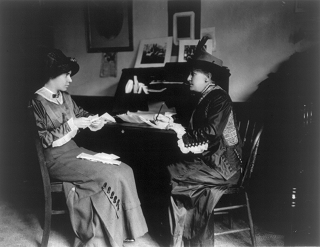Is Environmentalism a Fad?
As I wrote the other day, the concept of environmentalism in Western culture (or at least any real popularizing of the idea) is almost brand new. It dates to the mid-20th Century, and can be said to have begun with the publication of Rachel Carson’s book Silent Spring in 1963. Until that time, there was essentially no recognition among those of European heritage of the fact that humankind is capable of inflicting permanent damage to its home planet, and therefore carries a vast set of responsibilities to restrain itself accordingly.
Today is the anniversary of the first date of publication of the Encyclopedia Britannica in 1768, released in weekly installments, and finally completed in 1771. I was amused to see that the entry for “woman,” in its entirety, read: ” ‘Female of Man’ See HOMO.”
Wow. Environmentalism sure isn’t the first new “ism” we’ve ever had; according to this, feminism certainly wasn’t a “thing” in the 18th Century, was it?
This gives rise to the question: Will either of these two dominant current-day modes of thinking become lost and disappear as “fads?” Those outside the U.S. may not know that this notion, i.e., taking care of our Earth is a fad, was an important theme in the 2012 Republican presidential election campaign–one that garnered over 47% of the popular vote. Based on that, I have to admit that anything is possible.
Having said that, I believe that humankind has been on a general upward trend in terms of becoming more civilized over the last 800 years. Examine the arc of our path from the signing of the Magna Carta in 1215. Think of the Renaissance, the Enlightenment/Age of Reason, the French Revolution, the U.S. Constitution, the abolition of slavery, Women’s suffrage, civil rights, the notion of universal human rights, and so forth.
Obviously there have been, and continue to be, bumps in the road. Recall that Arthur C. Clark pointed out in his wonderful video that he made on his 90th birthday, that the 20th Century was the most barbaric in history, and implored future generations to become “less tribal.” Today we have the unbelievably repressive regime of Kim Jong-un, the many brands of Muslim extremism, and the far less visible suppressive operations of Western Governments, about which, to our shock, we’re learning more every day.
Nonetheless, I believe that we are living through a period in which the sheer horror of all this is being exposed at record pace, and, I think, marginalized.
It sure is hard to imagine a world in which the concepts of women’s rights, environmental justice, and all the other elements of what we broadly refer to as “civilization” recede as fads-gone-by in this tiny blink-of-an-eye in human history.

